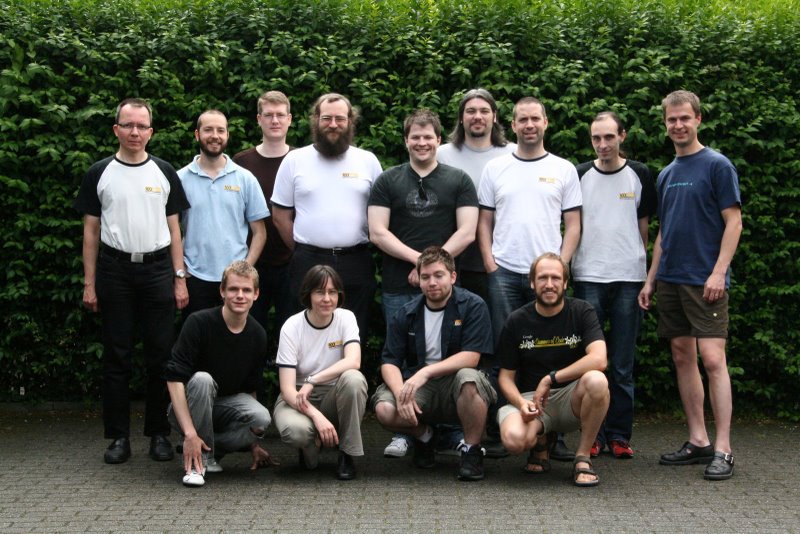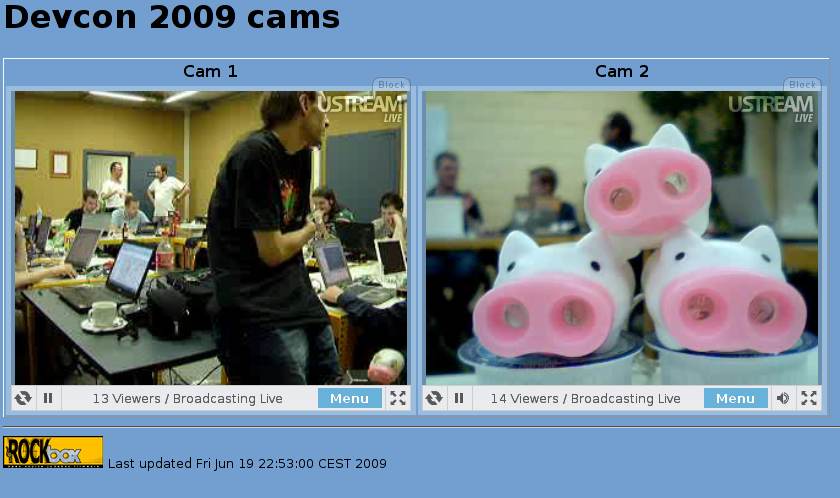The Rockbox team that gathered in Ghent for this weekend of talk, hacking and socializing (drinking beer) is caught on this group picture. Click the image for a slightly larger version. Photo by Petur.
The people on the photo
The top line from the left: amiconn, markun, bertrik, gevaerts, GodEater, AlexP, Zagor, domonoky, Bagder (me!)
The lower line from the left: kugel, pixelma, scorche, petur
We did have a 2-hour discussion session on the saturday, and I expect to post an mp3 of it later on. The short and compressed outcome in plain text is found here. Petur was a great host. The facilities were nice, the hotel was great, the food arrangements worked out perfectly. A swell weekend!
As our tradition demands, we did bring out all our targets (portable music devices that can run Rockbox or at least have some code in the Rockbox repo) to be used as building bricks to create a Tower of Rockbox.
This first picture shows that we have a pretty wide selection of players in this room:
With all those “bricks” put in an imaginative order on top of each other, the result could look something like this:
you may enjoy comparing this building with last year’s creation.
More pictures from this year can be found in Petur’s collection and gevaerts’ collection.






 ports in regards to the mainline Linux tree? They’re both using ARM cores (of course).
ports in regards to the mainline Linux tree? They’re both using ARM cores (of course).

 There’s already a bazillion instructions on how to install and run Linux on your EEE PCs out there, but they all seemed to miss one (for me) crucial little detail:
There’s already a bazillion instructions on how to install and run Linux on your EEE PCs out there, but they all seemed to miss one (for me) crucial little detail: